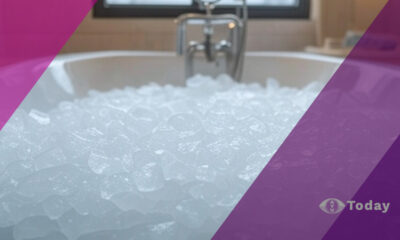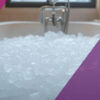Millions of people across the UK could be missing out on a surprising health boost hiding in their daily shower routine…
New research reveals that with a few simple tweaks, this everyday habit could help strengthen your immune system, improve circulation, and reduce stress—benefits most of us never knew were possible. Plumbworld, a trusted name in home improvement, highlights the importance of creating the perfect shower experience…
Charlotte Hughes from Plumbworld:
“It’s fascinating how something as simple as a shower can impact our health in such profound ways. These small adjustments—like ending with a cold rinse or using essential oils—aren’t just about creating a relaxing experience; they actively support circulation, boost immune function, and reduce stress. Showers have evolved from being purely hygienic to a vital part of our daily wellness routine, and it’s exciting to see more people recognising their potential.”
Tips to Boost Your Immunity in the Shower
1. Perfect the Water Temperature
The ideal temperature of 37–40°C helps relax muscles, improves blood flow, and stimulates your lymphatic system, which carries immune cells throughout your body. Too hot, and it could stress your skin and body, negating the benefits.
- How to apply it:
- Use a thermostatic shower mixer to maintain a consistent temperature.
- Test the water on your wrist before stepping in—it should feel comfortably warm, not scorching.
- If your shower setup doesn’t allow precise control, adjust the temperature manually until you find the right balance.
2. End with a Cold Blast
A brief exposure to cold water at the end of your shower triggers your circulation and immune cells, leaving you feeling energised and more resilient to daily stressors.
- How to apply it:
- In the last 20–30 seconds of your shower, slowly turn the water colder while staying calm and taking deep breaths.
- For beginners, start with lukewarm water and gradually make it colder over a week.
3. Incorporate Essential Oils
Oils like eucalyptus and tea tree are known for their antibacterial and antiviral properties. They also create a relaxing, spa-like experience, which reduces stress—a key factor in maintaining immune health.
- How to apply it:
- Add 2–3 drops of essential oil to a washcloth, shower diffuser, or directly to the shower floor (away from the drain).
- For an enhanced experience, use a showerhead with an aromatherapy attachment that diffuses essential oils as you bathe.
4. Keep Showers Short
Long showers strip your skin of its natural oils, weakening its barrier and leaving it vulnerable to dryness and irritation. This can impact its ability to defend against bacteria and viruses.
- How to apply it:
- Set a timer on your phone for 8–10 minutes.
- Focus on washing efficiently—lather up, rinse thoroughly, and step out.
- Consider installing a low-flow showerhead to reduce water use while sticking to the time limit.
5. Add Steam for Better Breathing
Steam from warm water can clear your airways, helping your respiratory system function better—especially crucial during cold and flu season.
- How to apply it:
- Before stepping into the shower, let the water run hot for a minute or two to create steam.
- Take a few deep breaths before turning the temperature down to your ideal setting.
- For an extra boost, combine this with eucalyptus essential oil to enhance the decongesting effect.
Practical Solutions for Everyday Use
Your shower is more than just a hygiene routine—it’s an opportunity to support your health, especially during busy days. These adjustments are simple, cost-effective, and fit seamlessly into your daily life.
By turning your shower into an immunity-boosting powerhouse, you’re not just cleaning your body—you’re giving it the tools to fight stress, improve circulation, and stay resilient. Try these steps today and feel the difference!











